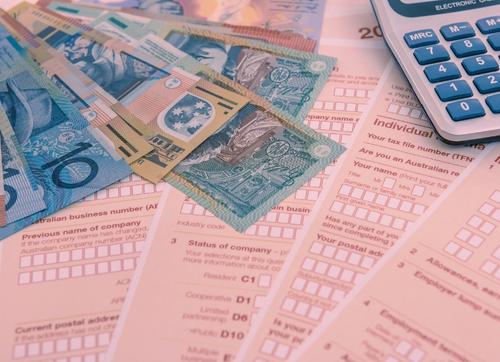9 min read
The End of the Low and Middle-Income Tax Offset (LMITO)
The Low and Middle-Income Tax Offset (LMITO) is ending, and this will have an impact on your tax return. If you're an Australian taxpayer, you need...
The end of the financial year is here and between filing tax returns we have managed to come up with some more ways to maximise your tax return. So learn how to get the most out of your tax return in 2023 update!
In this article, we will discuss how to maximise your personal tax return so that you can get the best refund and be compliant with the Australian Taxation Office (ATO). We have many years of experience dealing with tax returns and have completed thousands of personal returns.
In this article we have included ways to maximise your individual tax return that have become more relevant in 2022 such as cryptocurrency, working from home and travel expenses. Read on to learn more!
It is vital that you get the basics right to ensure you are taxed correctly and to get the most out of your tax return. To start with a tax file number will ensure you get taxed correctly, without one you will be taxed at the maximum marginal rate of 47%!
Although you can get this back in your tax refund it will make it difficult to lodge your tax return and it is worth it to not lose almost half your income to taxes each week. You can create a tax file number for free and access it online through the ATO website.
You will be in a similar situation if you don't have an ABN and you are subcontracting, as your employer will be required to withhold tax at the maximum threshold.
It is also important to note that if you are a subcontractor or sole trader and have an ABN you will be responsible for your tax payments.
For example, if you are subcontracting for food deliveries or are subcontracted on different job sites you are responsible for your taxes and should get professional advice from a tax agent.
It is also important to claim the tax-free threshold properly so that you pay tax correctly. If you are working multiple jobs it is recommended to not claim the tax-free threshold on the higher paying job.
If you do claim the tax-free threshold with both employers you will not be taxed correctly; instead of getting a refund you will likely have a tax debt. This is because you will be taxed as if you are only receiving income from one job.
The end of the Low and Middle-Income Tax Offset is here, which will lead to a substantial drop in tax refunds for most individuals. Learn more about the end of LMITO.
With the constant interest rate hikes, and the end of LMITO 2023 is the year you want to ensure you are maximising your tax return and claiming all available deductions.
Optimising your tax return and claiming all the deductions you can is hard. To get the maximum refund whether you're in a professional service or self-employed you should consult with a tax agent, as this will not only make tax simple, but will also save time.

The way you claim working from home expenses has changed a lot since 1 July 2022 as we discuss in our working from home blog.
Essentially what these 'refreshed' changes mean is that the methods to claim is different now. You now have two options for home office expenses:
The fixed rate method: 64 cents per hour of working covers all expenses except a decline in the value of assets, repairs and maintenance costs. If you have a dedicated office space you can also claim the cleaning expenses.
The actual cost method: Using this method you can claim the work portion of all work related expenses such as mobile phone expenses. The ATO is looking closely to ensure that these claims relate directly to your income.
This is a very simplified explanation of working from home, and it is best to consult with a tax expert so they can help you with your individual circumstances.
Did you know you are entitled to claim a tax deduction for study expenses?
You can claim any study fees if it directly relates to your current employment activities or if it is likely to result in an increase in income for your current employment activities.
You can claim the following:
This is a basic outline of expenses you can claim however everyone's circumstances are different, so it is best to consult with tax agent.

Motor vehicle claims depend on your individual circumstances. There are two methods you can use to maximise your tax return refund:
The first is the cents per kilometre method which is a simple method where you can claim 72 cents per kilometre for work-related trips for the 2022/23 income years. This accounts for wear and tear, registration, insurance, petrol and servicing of your car.
For this method, you should keep a diary of work-related trips or use the ATO app. This is generally used if you don't use your car a lot for work as the maximum you can claim is 5,000 kilometres.
The second method is the logbook method. This is calculated using a logbook for 12 weeks. Through the logbook you will show when you were using your car for work-related purposes and when you weren't, this will help you create a percentage of the total that you can claim from your yearly vehicle expenses.
This is just an overview of car expenses and every individual's circumstances are different so it's best to consult with a tax agent to get the best advice.
If you are a sole trader or own a business you may be eligible for instant asset write off if you purchased a vehicle before the end of the financial year
Apart from keeping track of tax-deductible expenses, there are tax planning strategies you can implement to reduce tax. For example, if you contribute to your super fund, you only pay 15% tax if you earn under $250,000! Depending on your tax bracket you can save thousands in tax and grow your super balance.

Cryptocurrency became a very popular investment in Australia in 2021, however, the way that you buy and manage your cryptocurrency will have implications on your tax.
When you buy and sell cryptocurrency you should be mindful of potential capital gain events. Capital gains are calculated based on the value you received minus the cost on the initial outlay.
For example, if you bought $10,000 worth of a coin and sold it for $15,000 you will be taxed on the $5,000 profit as a capital gain. If you hold an asset such as stock, property or cryptocurrency for over 12 months you are entitled to a 50% discount on the capital gain.
Using the example above if you held the cryptocurrency for over 12 months and then sold it, you would only be taxed on $2,500 at your marginal rates. You can also deduct fees related to the trading.
This seems simple and it is easy to navigate for stocks and other assets, however cryptocurrency has special characteristics which can add complexity.
A capital event can be triggered if the cryptocurrency has a coin swap or chain fork and calculating these capital gains can be more complex if there are numerous coins, across multiple exchanges, and wallets.
Each time you trade cryptocurrency or sell a coin and buy another it is a capital event that you need to report to the ATO. Although software can help it can become very complicated to calculate capital gains accurately and the cost of advice can become expensive. This is something you should consider when buying any asset but is particularly relevant to cryptocurrency.
Most of the people reading this won't have a capital gain from shares, but instead a capital loss from the recent economic downturn. You can however still take advantage of this. If you have shares that you don't believe will recover or you are considering selling then this could help your tax return.
You can claim a capital loss on shares which will lower your total taxable income. If you managed to get a capital gain, and held the stock for over a year you are also entitled to the 50% tax discount.
Tips to Make Lodging Your Return Easier
As experienced accountants, we are always trying new things to make tax easy, from using AI for taxation to using various softwares, however there are some methods that have always made lodging tax returns a breeze for individuals. And here's the secret: organisation is the key. The more organised you are, the smoother your tax lodgings will be.
To help you out, we've included some of these easy and effective methods below. So, get ready to embrace organisation and simplify your tax journey like never before!
Keeping receipts or invoices will help you accurately lodge your tax return. If you are missing any documents, it could lower the amount you can claim, or disqualify you from claiming certain expenses, increasing your tax liability.
For example, without receipts of clothes purchased you will be limited on the amount you can claim, so you won't be maximising your tax return and your income tax will be higher than it could be.
It is best to consult with a registered tax agent to understand what tax deductions you need to keep receipts for as every situation is different.
Although doing your tax online won't give you a bigger tax refund it will make it easier to lodge a tax return. You can lodge online through the Australian Tax Office app (MyGov). You just need your tax file number and all relevant information about your income and deductions.
Can your tax agent lodge your tax online? Most tax agents now can do your tax return online, making the process faster and often cheaper. If your current tax agent can't do your tax return online and you want it completed quickly, you should consider going with another tax agent.
Using the online tax calculator can also be helpful for you to prepare for how much you should pay each week in tax, especially if you have your own business. It is vital to prepare to ensure you don't get caught by surprise with a large tax debt.
It is also more convenient and will cost you less to use software to assist with your tax return, especially if you are a sole trader. Software such as Xero can make keeping records easy and will also make it easier for your tax agent to prepare your tax return.
Given this it will depend on how quickly you want your tax refund to hit your bank account, as well as how easy you want the process of lodging it to be.
It is always best practice to review the ATO prefill and make sure the information is up to date and correct. Failing to do so could lead to issues with the ATO, therefore it is best practice to work with a registered tax agent to help you navigate this.
Organisation and planning are essential to maximising your tax refund each financial year.
Planning and working out what receipts and expenses should be tracked is necessary to get the best tax return. It is also vital that you know any due date that is applicable to you. Getting your information pre filled can also make the process a lot easier.
Along with careful planning, another crucial aspect is the organisation and safekeeping of receipts. By meticulously documenting and storing your receipts in a secure place, you not only ensure compliance with tax regulations but also provide yourself with the necessary evidence to claim eligible deductions, ultimately maximising your potential tax refund.
If you're struggling to claim a tax deduction it's a good idea to hire a central coast tax accountant. Tax agents have years of experience completing personal returns and can navigate complex and changing Australian tax law. They can help you maximise your refund and make sure you're compliant with the ATO.
If your returns are especially complex ie., you have a rental property or are living abroad and have Australian income, the tax benefits of hiring an accountant can help you navigate the complexities of your tax return.
Coleman Financial Group, is an established accounting firm with over 20 years of experience, and proudly operates with registered tax agents. We also always surpass the ATOs benchmark due date of 85%
The information provided on this tax blog is intended for general informational purposes only and should not be considered as professional tax advice. While we strive to ensure the accuracy and currency of the content, tax laws and regulations are subject to change, and individual circumstances may vary. We recommend consulting a qualified tax professional or seeking advice from the Australian Taxation Office (ATO) for personalized guidance tailored to your specific situation. The authors and creators of this blog disclaim any liability for errors, omissions, or inaccuracies in the information provided. Use the information at your own discretion, and always exercise caution when making financial or tax-related decisions.

9 min read
The Low and Middle-Income Tax Offset (LMITO) is ending, and this will have an impact on your tax return. If you're an Australian taxpayer, you need...
 Read More
Read More

11 min read
In today's digital age, one phenomenon is taking centre stage and captivating minds across the globe: Artificial Intelligence (AI), the driving force...